
Login
X
- Home
- About Us
- Courses
- Graduation
- Diploma Certificate
- Professional Diploma
- Special sessions / Aptitude boost up
- News & Events
- Student zone
- Placement
- Gallery
- FAQ
- Contact Us
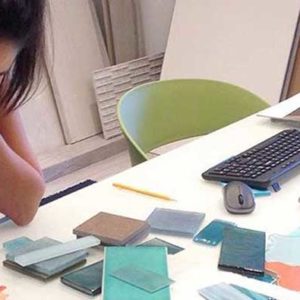
Who doesn’t like refreshing interiors? The beauty of an aesthetic interior is in the hands of its designer. One fine day, you may wake up to find designing as your dream career. So, once you decide that interior design is your call, don’t hold back! Begin your journey to learn and master this field. Also, realize the things you should know about becoming an interior designer.

A creative mind is one of the most important tools, to begin with. And every day you should exercise your creativity. The world of design is fast evolving. You have to be on your toes to keep pace with it. So the best way is to expose your creativity to new challenges.
Seek opportunities that push you to excel. Participate in design events, competitions, and forums. Also, spend time in creative exercises. And it helps when you make a habit of improving your creativity and design skills.
You may be really good at designing, but to make it work you need some extra skills. Yes, the way you select to present your designs is one of them. Here the trick is to know your client well enough to make the right choice of presentations. There are many ways to go about it.
And more than that, a lot depends on HOW you express. So, pay close attention to your words, body language and above all, your language skills. Why you say? Well, in interior design, clear communication means saving a lot of precious time and money. Well, you have to express your ideas to your client and to your workers in the exact same manner.
No, you don’t need to but that latest gadget on offering! Know about the latest technological advancements in related areas. Materials, software, design trends, construction methods… a lot of these evolve with time. And if you are an interior designer, you have to keep learning and un-learning all through your professional life.
Hard work will take you places, that’s a real deal in this field. So, this means a you will spend a lot of time practising , learning and exploring design stuffs. Yes, your academic training will give you many such instances but the point is to extend these habits to your practice also.
Stay true and honest to your work. It helps when you take responsibilty of the things you do.
Many interior designers opt to work part-time in academics as well. And that is mainly because it helps them to regularly revise their basics and learn advancements. Also, a lot of brainstorming is a part of education. That definitely is a big creative boost.
Never miss any learning/working chance that comes your way. A designer rarely uses the words ‘I can’t.’
When all is said and done, becoming an interior designer comes down to working SMART along with working hard. How can your masterpiece fetch you future works if you don’t market it wisely? And of what value is your work if it crosses the budget and time constraints? You should create or attend such platforms where you can increase your scopes of future projects.
Develop contacts. A word of reference may land you a valuable project. Your work quality and your client relation should be testimonies in themselves!
After working for some time as a freelancer or an employee, you will definitely want to open your own design firm one day. Again, though you want to be your own creative boss, however, don’t forget that ultimately you need income to survive!
You should develop business management skills if you want to be successful as an entrepreneur. Prioritize and divide time and resources with respect to the works that you get. Understand the market trends and your local business ethics. After all, you need to make both the client and your firm happy!
A great beginning to becoming an interior designer is when you enroll into a premium interior design college. Before you join a design school, do some background research and make sure it helps you in making your dream come true.

Interior Designing is the art and science of making a space aesthetically useful for its intended purpose. In simple words, it it makes your interiors beautiful and functional. And an Interior designer is the one who does this job. Take your living room, for example. The perfect interior will make sure you get compliments for its looks. And thanks to its thoughtful design, you will only be happy to entertain your guests in it.
Of course, since it is both an art and a science, you should make sure you know those bits before you start with it! Or better still, hire an interior designer who will do it for you. This designer will make sure what exactly you want your space to be and will make it happen.
Well, do you have it in you to be an interior designer? Great! Don’t search further, just read on. This blog will help you to know more about the career, salary, scope, qualifications and other details of interior design.

Interior designer has a very important role to play in today’s world. How we live greatly influences what we become. And so, our homes need to have that edge in them. Also, equally important are places like offices where we spend considerable active hours of our day. Or the malls/arcades that account for your weekend binges. Wait, don’t forget your vacation trips and those luxurious resorts. Who designs them? So here you get an idea about the career graph of an interior designer.
The need of the hour is to preserve nature when you design anything and everything. And if you get the correct training and exposure, you can be a successful and much-in demand interior designer.
Therefore, you can confidently pursue interior design. So the next question that strikes you is how to become an interior designer? At present, there are many courses and programs available to study interior design. Simply click on interior design course to know more.
Interior designer salary depends on many factors. To begin with, the type of work(residential/ commercial/ institutional/ hospitality etc.) is one. Another is the method you choose to calculate your fees. And then the size of the work, location, your role(freelance/ employed in a designated post), nature of work ( interior design/ space planning/ interior decorating/ furniture and furnishings only etc.) also contribute to the decision of your income.
Typically, as a fresher when you work in a design or architecture firm, your salary may be Rs 10,000/- to Rs 15,000/- per month. After two-three years, you can expect Rs 25,000/- to Rs 30,000/- per month depending on your post and firm. Almost all designers undertake extra freelance works which give them additional income and exposure. So in a nutshell, you stand to earn as much as you want to!
You may join as a 3D visualizer, AutoCAD drafts-person or a Site-supervisor. The type of interior design job you select is generally according to your interests. And when you improve with time, you can become a senior interior designer in a firm.
You can be an entrepreneur in any related area of your choice. There are many interior designers who open their own studios in fields like product design, furniture design, lighting, kitchen design etc.
It is a known fact that any person who has a knack for interiors and design can be successful in the field without any formal education. Yet, there are many,many advantages that the formal interior designer qualifications give you. And the basic one is an academic recognition. An interior design degree or diploma makes you eligible to apply for many posts in the design field. Furthermore, you can also go for higher studies in design branches. Also, you can learn the technical parts only if you study Interior design from a good college.
Interior design jobs are constantly on the rise. These days, the building and construction fields are fast expanding. So you can select from a wide variety of job offers. The many options are: work in a studio, supervise a site, focus on interiors only, become a space planner, become a color consultant, manage projects or undertake interior contracts on the whole.
You have a lot to choose from, when it comes to jobs in interior design.
The duty of interior designer depends on the post he/she holds in a company. So as a Draftsman, you create detailed working drawings like plan layout. And if you are a 3D Visualizer, then you work in software that creates realistic images for clients. The workers then replicate these images on site. Sounds exciting, right?!
The interior designer’s responsibility in the site is to supervise everything that goes on in there. And that includes the materials, labor issues, site conditions..everything.
Well, if you are a Project Manager, you are literally running the whole show! Weekly meetings, regular client updates.. you make a lot of teamwork happen! In short, you can be a
There are many Interior designing courses to choose from- right from a short term vocational course, to a one year diploma course and a three year graduate level course. Interior design can make you go beyond yourself. There is so much creativity and passion in it that you tend to celebrate your works. Each work is a new chance to make something new!
To make this happen, a lot depends on you! So, select a good place to study interior design. A place that gives you knowledge and pushes you to explore your design senses. To know more, visit vismayam college of art media

There are many ways in which you can study interior design. To begin with, you can search for materials on this topic. If you really want to learn for a professional touch, you can search for institutes, colleges, and online platforms. And when you list them down, you can clearly see two categories. One allows you to learn interior design online and the other group requires you to go to classes. Ofcourse, you may find it difficult to decide on it. So, this blog is all about the pros and cons of each type.
There are many universities that offer online programs on designing. It includes basic certificate courses to graduate level and beyond. Also, some colleges also offer specialties in design field. Let us see how the whole concept fits your scheme of things.
Pros:
Cons:
To study interior design, many people get admission into interior design institutes and colleges. So what exactly sets them going? Know about the advantages and disadvantages about learning in classes.
Pros:
Cons:
It is always better to know how, before you decide on where to study interior design. Do want to see how a standard design college looks like? Visit vismayam college of art and media
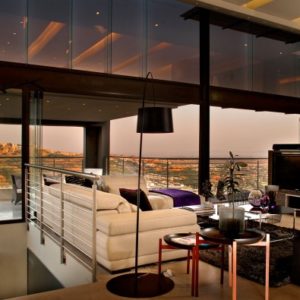
These days, your home is an extension of your design taste and preferences. And your designer takes great care when adding these details to your home. Of course, you can do that yourself! But your designer knows the trending interior design styles. And he/she combines that knowledge with your inputs to create that dream decor in your home.
It is always better to have a basic idea about different interiors out there. Well, think about it like this- when you buy a shirt, you browse through many. And you select one only when it suits best to your choices. Here, you need to know how to tell the difference between different shirts. The same goes with your interior.
So, this blog tells you about the common six different interior design styles that can help you to decide the best for you.
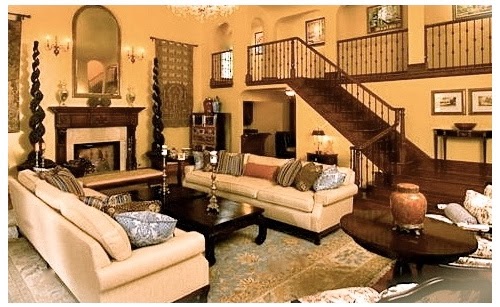
A traditional interior is made of different elements that reflect the cultural/traditional practices in a region. Many factors influence this style, such as local materials, art forms, climate patterns and age-old practices. In international design platforms, it refers to 18th & 19th century European Interiors. But in our country, all states have their own traditional interior design styles.
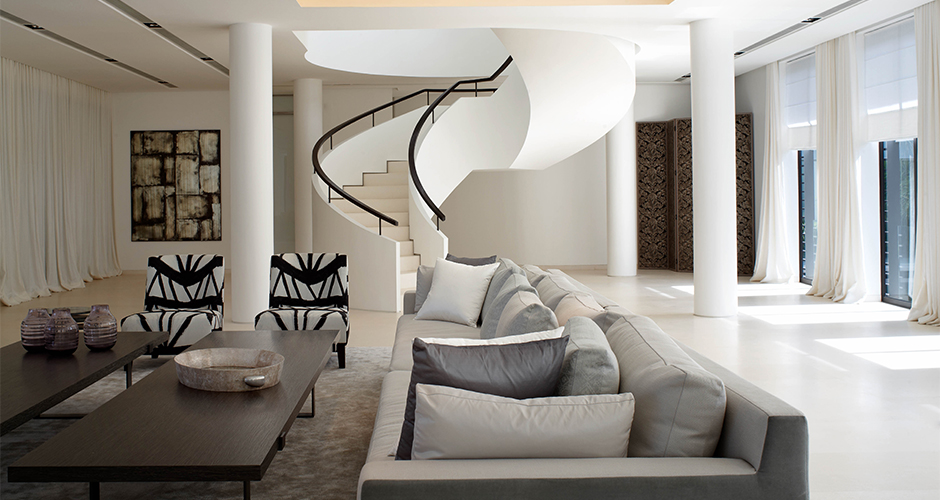
These interiors arrived when the early 19th century designers and architects were fed up of extravagant and wasteful designs. They developed a more simple and elegant style which the local people could also afford. This style moves away from traditional materials such as wood. It uses materials like glass, steel and leather. The color palette is quite soothing- white, black, grays and neutral tones. You can observe how everything follows an order, a smooth line, in a modern interior. The design principle is ‘Less is more’.
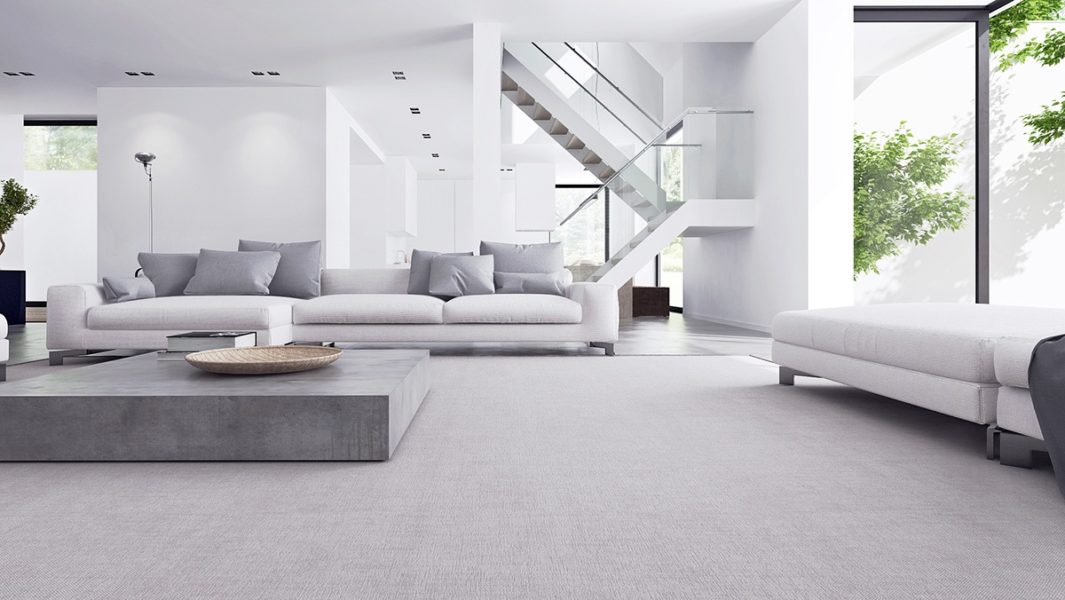
This interior allows only a selected few basic things in its space. It tends to do away with all extra items. And that means, there is literally no scope of adding that favourite vase of yours, if it has no use in your interior! Thus, in a minimal bedroom, you can easily spot a bed and a humble wardrobe. And the dressing table,side table etc may either camouflage in the background or may show limited presence. Though it sounds easy going, it actually requires some clever planning on the designer’s part.
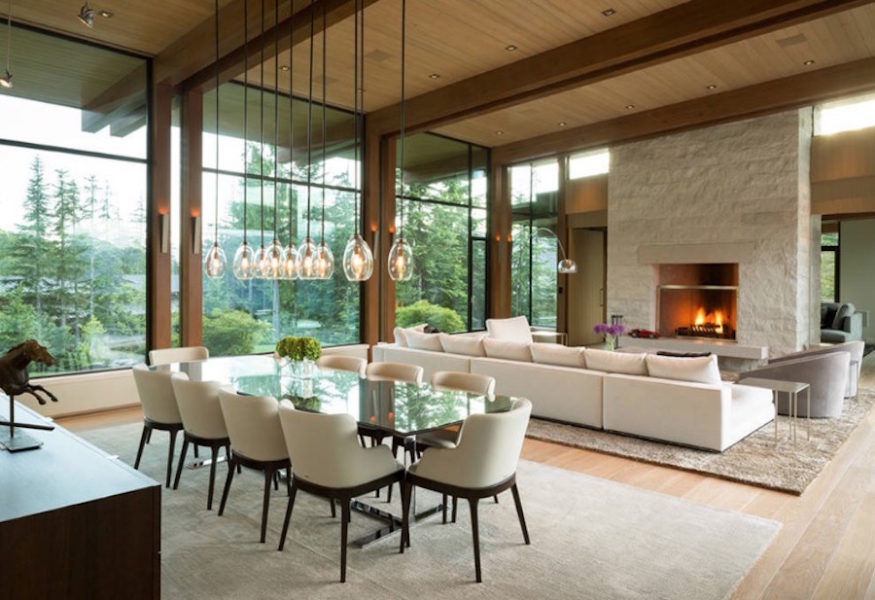
This is a safe bet if you want your interior to be simple like modern style,but with your personal choice of colours. An intresting point to note here is that the style changes with time. So this space may show the simple lines and flowing designs. Still, the grays, black and whites may move out to give way to earthy tones. Aand another feature that stands out is the presence of warm lights. Also, when it comes to materials,don’t have to stick with steel and glass. You are free to add other materials of your choice. And again, you can mix it with a regional influence ( aka traditional) or any period style.
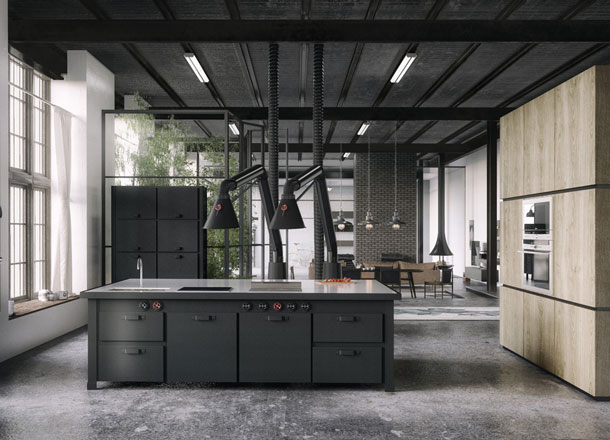
Think about a warehouse. You may picture a big room mostly in brickwork, with supply pipes running across or along the cornices. You may notice a certain ruggedness about the place. And this feel is what this style is about. It adds that bold touch to a space. A lot of storage spaces are open shelves. Simple furniture and muted colors, mostly burnt siennas, are its trademarks. It may sound a bit off to you, but have a look at some of them. You will know why they are big.
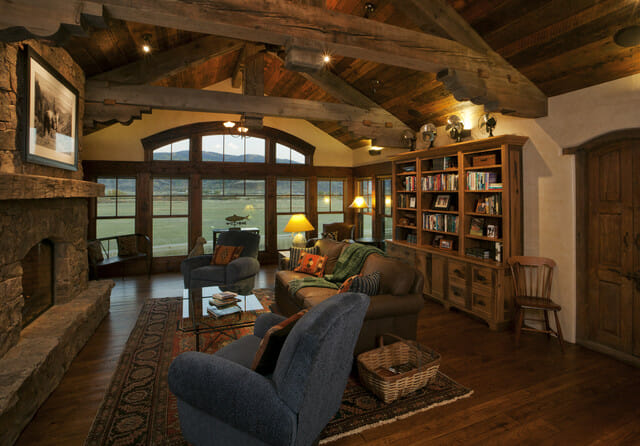
This style has a certain charm.. a rugged look, but that ends up making it all the more cozy. We are talking about natural stones, wooden beams and posts, large and boxy wooden furniture, thick soft elements. Add a dash of neutral colors, white walls and matt metal accessories. At times, you may spot a faux animal hide. A fireplace is another piece of charm in it. It eludes a warm,homely feel.
For more rustic interior design inspiration
You can also find extension of each style in the associated landscape of these houses. You can find a lot many other styles out there. In fact, you can also mix and match them with one of these, if that’s what your heart desires! After all, it is all about selecting the best from all types of interior design styles, for your dream home.
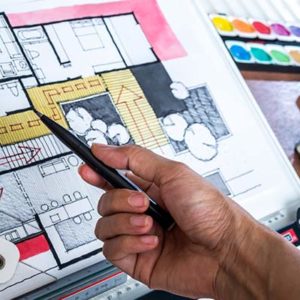
Like any other place in the world, Interior designers create the best space across Indian cities. Hence, the demand for interior designers has increased rapidly in many places. One such region is the tropical south of India. One such state is Kerala. When you design any interior, you should consider the local weather and resources. So, let us find out more about Interior design in Kerala.
The practice of Interior design dates back to Victorian era, when some of the very first designing took place. The reason was simple- a change. Even back then, the need was of decorating according to one’s own choice. If you are wondering whether there is actually any need of a designer in Kerala, think again! Globalization has made big changes in its society, culture and landscape. And you cannot ignore the fact that Kerala has one of the highest literacy rates. Thus as a result, every home owner is well aware of useful designing and its benefits in the long run.

The tropical climate is humid and at times, hot. But, on the plus side, there is a lot of lush greens. This provides the land with a lot of resources- water, land and otherwise. Like with any other place, the traditional construction and interiors have made good use of these. For example, you can see wide use of laterite stones in construction, over modular bricks. No wonder, since it is available abundantly in the state. Moreover, it suits the local climate patterns quite well. One can also find a lot of ceramics (such as roof tiles) and timber products in Kerala homes.
The average Kerala citizen is keen on protecting his/her ecological resources. Hence, home owners want you to preserve and improve the local ecology when you design their houses. They are quite aware of new developments in the field. Thus, people have an easy approach to new materials. There are many who expect you to know all things new in construction market. And so, as a designer it is always exciting to learn and apply new things.
The society is a mix of people from different religions and cultures. And many apply their religious and cultural beliefs to their homes. This adds variety to your design portfolio. A person may prefer traditional Kerala interior. Another family might ask for a Moroccan interior. A bachelor may look for simplicity in his studio apartment. See what I mean here?
Just visit any random supermarket in Kerala. Next to the billing counter, you can see many design magazines on a stand. This gives you a fair idea about the importance of Interiors in the state. And don’t think the designing is limited to public areas. In fact, many people want the latest modular kitchens with trending equipments. Also, there are many who want spa bathrooms! So,the next time, think Kerala when when you think about luxurious settings and decors!
Now, the real question is, how to become a successful interior designer? Apart from the tips in the blog, you should also know your location quite well. Put yourself into regular market surveys. Attend design- related events and competitions. Also,make sure that you are market ready for the profession. And how will you do that?
The answer is quite simple- Join an Interior Design Institute. No, not just any college, but a premium one. Of course, your next question is, how to decide on it? Read ‘best interior design institute in calicut‘. Interior Design in Kerala is huge! Choose the best place to study the art in the state. And you can make it big in the field of Interior Design in Kerala.
Phone: 0495 272 2242